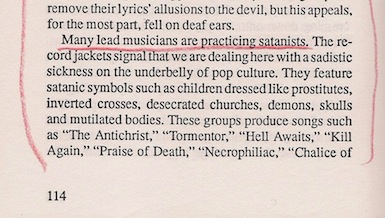Precious
Douglas H. Glover
Toronto: Seal, 1984
What we have here is the debut novel of a man who would one day win the Governor General's Award for Fiction. A cheap, mass market paperback, it received a fair amount of publicity, strong reviews and was shortlisted for the 1984 Books in Canada First Novel Award.
Precious sold out in just one month, then spent the next two decades out of print. Why this is so remains a mystery to me.
Precious is a mystery. Bantam/Seal certainly positioned it as such with cover blurbs by stablemates Stephen Greenleaf and Clark Blaise. The former, whose name means nothing to me, describes Glover's debut as "a novel of style and wit, wisdom and intrigue, one that travels well beyond the traditional bounds of the mystery story." Blaise, one of my favourite writers, has the better pitch: "
Precious is about newspapers, small towns, love, honour and death. The spiritual forebear of Doug Glover is clearly Ross Macdonald, the original chronicler of ambition and amnesia, and their bastard offspring, murder."
Well, I do like a good newspaper novel – and who doesn't like Ross Macdonald?
Glover's hero is Moss Elliot, a down-on-his-luck reporter whose unfortunate nickname gives title to the novel. Don't ask. Elliot's an okay guy, though the three failed marriages in his forty years might make you think otherwise. We catch up with him in a Toronto bar as he licks wounds incurred from an ill-advised dalliance with Anne Delos, the big-boned wife of a Greek professor/mini-Aristotle.
Hard up for work, the reporter heads east along Lake Ontario to Ockenden, a "small branch-plant city of about forty-five thousand", where he's lucky enough to be offered the position of women's page editor for the
Star-Leader. For a drinker and a womanizer it's not such a bad fit. Elliott's biggest competition – no competition at all – comes in the form of Damon Barret, an aging alcoholic plagiarist who once had a fishing column in the
Toronto Star. An eager kid named Ashcroft irritates, but he's also good for a round or two in the American House tavern.
They're not much of a team, but more than enough to handle happenings in grey Ockenden. Then an old woman is murdered – stabbed through the heart with a pair of scissors – and Elliot's tipsy world is rocked. The pursuit of a lurid news story leads to beatings, gunshots and a lovely and lonely damaged dancer who just happens to be the victim's step-daughter.
Precious doesn't much read like a first novel; it's too confident and a polished piece of prose. Admirers of Macdonald will be disappointed only in that Elliot vanishes with the end of the novel. A second 'Precious' mystery, promised in an old
Gazette piece, never materialized.
But then you know what those newspaper people are like.
Favourite passage:
Ashcroft was getting on my nerves. I know a lot about human relations; they're like strips of flypaper. He just wanted a little professional advice, a mentor, a pal. And I wanted to be left alone. All three of my marriages had begun with as little provocation. Anne Delos had wanted to borrow a coin so she could use the bathroom. You never know where that sort of thing will end.
Trivia: The 1984 Books in Canada First Novel Award went to
Perdue, or How the West Was Lost by Geoffrey Ursell. John Gray's
Dazzled, the subject of
an earlier post, was also on the shortlist.
Object and Access: A mass market paperback. Just two copies of the first edition - near Very Good at US$7.00 and US$7.98 - are listed for sale online. Can it really be so uncommon? Perhaps. A friend of the author tells me that he has never happened upon a copy.
The more durable Goose Lane edition from 2005 is also more attractive. Amazon doesn't offer the reprint, lending the impression that it's again out-of-print. Not so! Chindigo will ship it to you "in 3 -5 weeks", but why not just get it
directly from the publisher?
Update: Over at
Numèro Cinq, the author himself responds:
Brian Busby takes a look at my first novel, Precious. His blog’s subtitle is “A very casual exploration of Canada’s suppressed, ignored and forgotten” which tickles me no end & about sums me up. I am like Darkest Africa, the whitest Antarctica, Terra Incognita, the Unconscious: on Google Earth, I am the part you can’t see — there is no Street View of my house. BTW, for the reprint (which is still IN PRINT) I rewrote some of the book. Not a lot, but crucial bits at the end wherein the hero, Moss Elliot, performs heroic acts while incapacitated due to drink.
Mr Glover, you have yourself a sale!
And another: Bookseller Dan Mozersky, one of the four judges for the 1984 Books in Canada First Novel Award, generously shares a "small trickle of a memory" in the comments below.






















